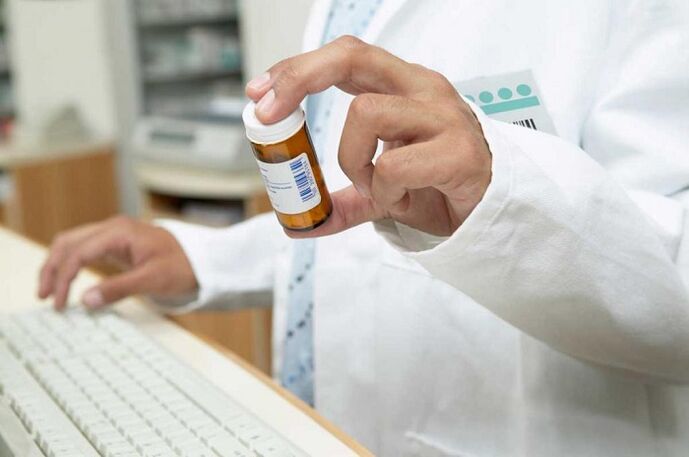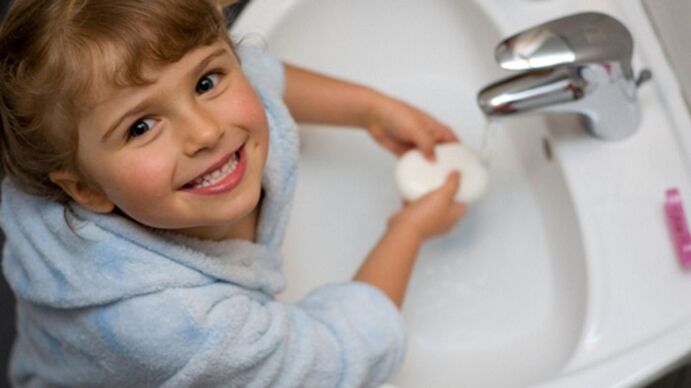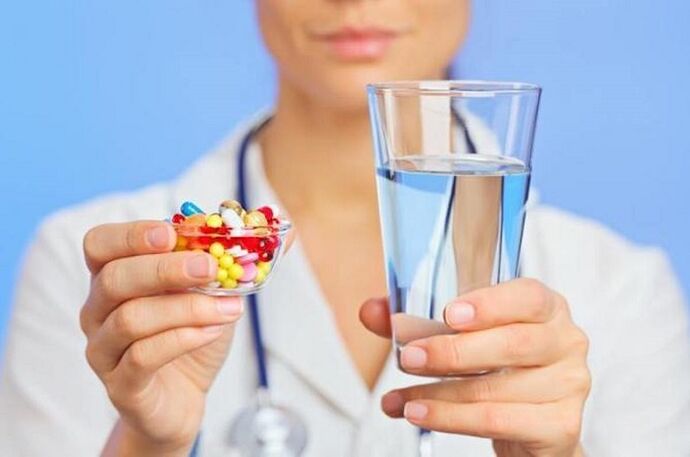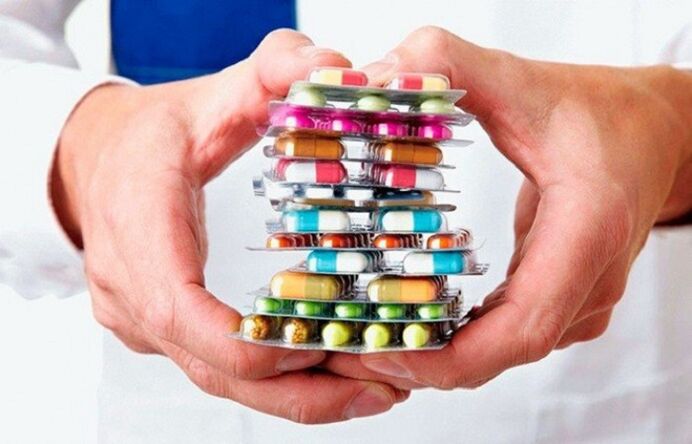Helminthiasis is a group of parasitic diseases characterized by a high degree of infection. Helminth eggs are highly resistant, they are able to stay on various surfaces in the environment for a long time and at the same time maintain their vitality. It is sad that helminth eggs surround us everywhere: in the soil, water, earth, dust, on food and pet hair. However, it is quite easy to prevent infection, so you just need to follow some preventive measures: rules of personal hygiene and general sanitary standards. After all, worm prevention is the best way to prevent helminth infestation.
Ways to become infected with helminthiasis
You can become infected with worms in the following ways:
- when you eat contaminated meat and fish;
- when eating unwashed vegetables and herbs, fruits and berries;
- through dirty hands;
- some parasites living in water are able to penetrate the skin;
- by infected insects that are intermediate hosts for the larvae;
- through infected feces;
- through pets infected with parasites.
Prevention of worms in adults
The prevention of worms in humans is not limited to compliance with the rules of personal hygiene, pharmacological preparations are also used for prophylactic purposes. Synthetic anthelmintics are prescribed only by a specialist, depending on the age, weight and general health of the patient. You should not self-medicate and take such drugs alone, as the parasites are of different types and live not only in the intestines but also in other organs. In addition, remember that with the wrong dose of the drug or uncontrolled intake of it, you can significantly harm the body.
First, if the wrong dose is given, the parasites do not die but migrate from the gastrointestinal tract to other organs.
Secondly, anthelmintics are very toxic, they can cause severe intoxication in the body and damage the liver.
Third, most anthelmintics only affect adults and their larvae and eggs remain unharmed.

Worm prevention is a set of measures that are not limited to just one pill or just the rules of personal hygiene. Just in some cases it is enough to observe only personal hygiene, while in others these measures are few, they are supplemented with pharmacological agents. Only the doctor determines in which cases the usual preventive measures are sufficient and in which they should be supplemented with pills.
Observance of the rules of personal hygiene
However, everyone is familiar with the well-known saying that it is easier to prevent a disease than to cure it. Before the disease is felt, it is better to follow the basic rules of personal hygiene. In addition, preventive actions are quite simple and very effective. Precautions against parasitic infection:
- frequent hand washing with soap and water, especially after using the toilet and before eating;
- frequent change of linen and bed linen;
- high quality heat treatment of meat and fish;
- refusal to eat raw meat and fish products, as well as low or medium rare steak;
- thorough washing of vegetables, herbs, fruits and berries under running water;
- use smoked, salted or dried fish with extreme caution,
- after each contact with pets, hands should be washed thoroughly and the cat litter cleaned with protective gloves; it is also necessary to treat the cat tray and bowls with disinfectant;
- ironing of linen and bed linen after washing;
- do not use water from unknown sources for food and do not swim in unknown bodies of water;
- trim your nails short, as helminth eggs can remain in the nail hole even after washing your hands thoroughly;
- regularly perform deworming of pets;
- use protective gloves when cleaning the premises, as well as for work in the garden.
How to protect children from parasites
Young children are potential victims of helminths because babies are unable to perform personal hygiene on their own. In addition, at this age they get to know the world around them, taste everything. Therefore, there is a high probability of developing a parasitic invasion in a child. In this case, the child's parents take preventive measures. However, it is impossible to monitor babies, at this age they are quite active and can become infected with helminthiasis at some point.

For prevention of worms in children it is necessary:
- wash your child's hands often, from an early age, to teach him the basics of personal hygiene;
- iron the baby's underwear and bedding;
- disinfect his toys and wash soft toys in hot water;
- do not allow pets to sleep in the same bed with your child;
- teach your child to wash their hands after each contact with pets;
- subject the food for the child to high-quality heat treatment;
- wash vegetables and fruits thoroughly under running water;
- keep the child's room clean and tidy;
- treat the place where the child crawls with disinfectant (if under the age of 1 year).
If an infection suddenly occurs, then only a doctor should prescribe methods to treat helminthiasis. You should not self-medicate because your child's health and life are at stake.
Anthelmintic drugs are potent toxic agents. It is necessary to treat the child with them with great care and under the strict supervision of the attending physician. Only the doctor prescribes the type and dose of the drug, as each drug has different age indications.
It is possible to give the child anthelmintic drugs only when the correct diagnosis is a parasitic invasion. Otherwise, you should not expose your child to the toxic effects of anthelmintic drugs. Parents should coordinate all their actions only with the attending physician.
How to take worm pills
All worm medicines are divided into:
- narrow-spectrum drugs;
- broad-spectrum drugs.
The first drugs affected a certain type of helminths and only destroyed them. The second type of drug affects most parasites of different types (round, flat and tapeworms). In addition, some drugs affect the helminth's respiratory system, others provoke muscle paralysis in them, others stop the process of glucose absorption, and still others block metabolic processes in the worm's body. All these actions contribute to the death of parasites and their elimination from the body.

Experts believe that the prevention of helminthiasis should be done twice a year. Once in early spring, and the second in late autumn, before the onset of the cold period. It is necessary to use drugs simultaneously when the patient experiences symptoms caused by a parasitic invasion. As a rule, these are:
- stomach pain;
- nausea and vomiting;
- itching in the anus;
- general weakness and malaise;
- insomnia;
- weight loss.
Anthelmintic therapy is carried out no more than 3-5 days. With a single dose of worm medicine, not all parasites can die, and the rest can migrate from the gut to other organs and even have time to lay eggs. After two weeks, it is necessary to repeat the intake of anthelmintic drugs to destroy the newly emerged helminths.
Anthelmintic therapy involves three stages lasting approximately two weeks:
- The first week prepares to expel parasites from the body. For these purposes, they maintain a light diet, take drugs that improve bile flow and the functioning of the gastrointestinal tract.
- The second stage consists in the direct application of anthelmintic drugs. The course of treatment is 5 days.
- The third stage is the elimination of dead parasites from the body. Laxatives and enemas are used for this purpose. The last stage is very important, as the bodies of helminths can begin to decompose, causing severe intoxication in humans.
Anthelmintic drugs
In the pharmacological market, worm tablets perform very well, in addition in different price categories. The following pharmacological agents are used for the prevention of worms:

Based on levamisole
Medications help to improve the body's defenses by producing the necessary antibodies in the blood. Also, drugs inhibit the process of oxidation of glucose (glycolysis), thus causing the death of parasites. The drugs are effective in various parasitic infestations. Side effects occur in the form of nausea, vomiting and abdominal pain.
Based on mebendazole
Most effective in the treatment of ascariasis, enterobiosis and trichocephaly. The drugs disrupt the metabolic processes in the body of the parasite, thus causing its death. The agents are highly toxic as they can accumulate in the body. For this reason, you should not use them alone without a doctor's prescription, as you may cause serious harm to the body. Contraindicated in pregnancy and lactation, as well as in the presence of chronic pathologies.
Based on albendazole
The drugs effectively kill helminths and protozoa, making them suitable for use in mixed parasitic infections. It should be used with caution in people with liver disease. The dosage and frequency of use are selected individually in each case, as it depends on the type of parasite and the degree of infection. The use of these drugs for prophylaxis is quite a reliable protection against various types of parasites.






































